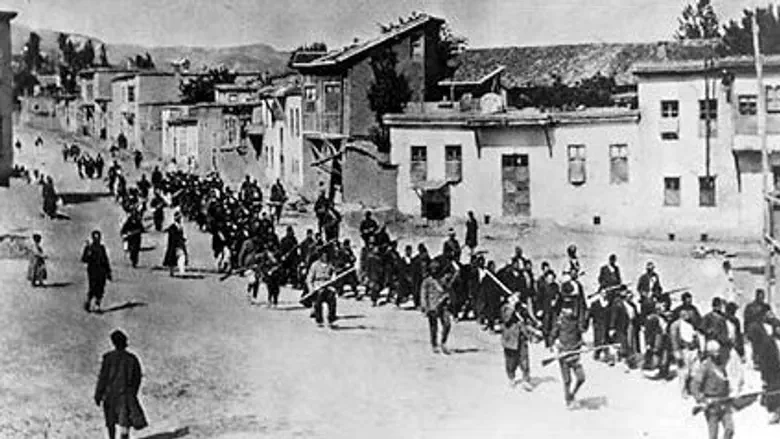On August 27, 2025, Israeli Prime Minister Benjamin Netanyahu, in an interview with Patrick Bet-David, used the term “genocide” to describe the massacre against Armenians, Assyrians, and Greeks during the Ottoman Empire. This is the first time an Israeli prime minister has openly recognized these events as genocide. However, it must be underlined that this does not constitute an official Knesset decision; rather, it reflects Netanyahu’s personal stance.
Despite lacking formal legislative backing, the statement carries symbolic weight and has already triggered political debate in Israel and concerns in Azerbaijan, one of Israel’s closest strategic partners.
For decades, Israel maintained a deliberate neutrality regarding the “Armenian genocide” issue. The key reason was the protection of strategic relations with Turkey and Azerbaijan.
In 2000, Yossi Sarid from the Meretz party pushed to introduce the subject into school curricula. In 2016, the Knesset’s Education Committee passed a recognition resolution, but this remained committee-level only and was never adopted as a full parliamentary decision.
Former President Reuven Rivlin and other senior figures openly favored recognition. Yet strong objections from Turkey and Azerbaijan prevented the matter from advancing further. Netanyahu’s recognition, therefore, breaks precedent and has been welcomed by left-leaning circles while drawing criticism from other factions concerned about upsetting Israel’s delicate regional balance.
-Azerbaijan supplies 40-60% of Israel’s crude oil needs, making it an indispensable partner in energy security.
-In early 2025, SOCAR acquired a 10% stake in Israel’s Tamar gas field, signaling deepening bilateral energy investment.
-Bilateral trade reached about $1.4 billion in 2024, consolidating Azerbaijan’s place among Israel’s top energy partners.
-Between 2016 and 2020, approximately 69% of Azerbaijan’s major arms imports came from Israel. In 2016, Baku purchased $1.6 billion worth of air defense systems.
-In 2023, the two countries signed a $1.32 billion deal involving two satellites and the Barak MX air defense system.
-Israeli company Elbit Systems also cooperates with Azerbaijan in UAV production, a capability that played a decisive role in Azerbaijan’s success during the 2020 Nagorno-Karabakh war.
Azerbaijan is unique in that it maintains close ties with both Israel and Turkey, effectively serving as a diplomatic bridge in the South Caucasus. For Israel, this partnership strengthens its geopolitical foothold in a sensitive region.
In the wake of Netanyahu’s declaration, sympathy for Israel in Azerbaijan could decline, creating pressure on Baku to respond cautiously. Israel’s long-standing neutrality in the Caucasus could be weakened, complicating its regional strategy. Energy and defense ties are too vital to collapse immediately, but weakened trust may erode long-term cooperation.
Netanyahu’s recognition of the Armenian genocide is not legally binding and does not constitute Israel’s official state policy. However, it is politically and symbolically significant, with repercussions for Israel’s domestic politics and its vital ties with Azerbaijan.
The Azerbaijan-Israel partnership rests on energy security, defense cooperation, and regional diplomacy — elements far more substantial than symbolic gestures. While the relationship may not be broken, careful diplomacy will be required to rebuild confidence and ensure that mutual interests continue to outweigh political tensions.
This issue is highly sensitive for Azerbaijan, both emotionally and historically. However, in my view, Baku will not sever its strategic ties with Israel because of this statement. The reasons are clear: Israel’s support for Azerbaijan in the fields of energy and defense is indispensable. At the same time, Azerbaijan plays a vital role in ensuring Israel’s energy security. In other words, in politics, interests outweigh emotions.
Rachel Avraham is the CEO of the Dona Gracia Center for Diplomacy and an Israel-based journalist. She is the author of “Women and Jihad: Debating Palestinian Female Suicide Bombings in the American, Israeli and Arab Media.
